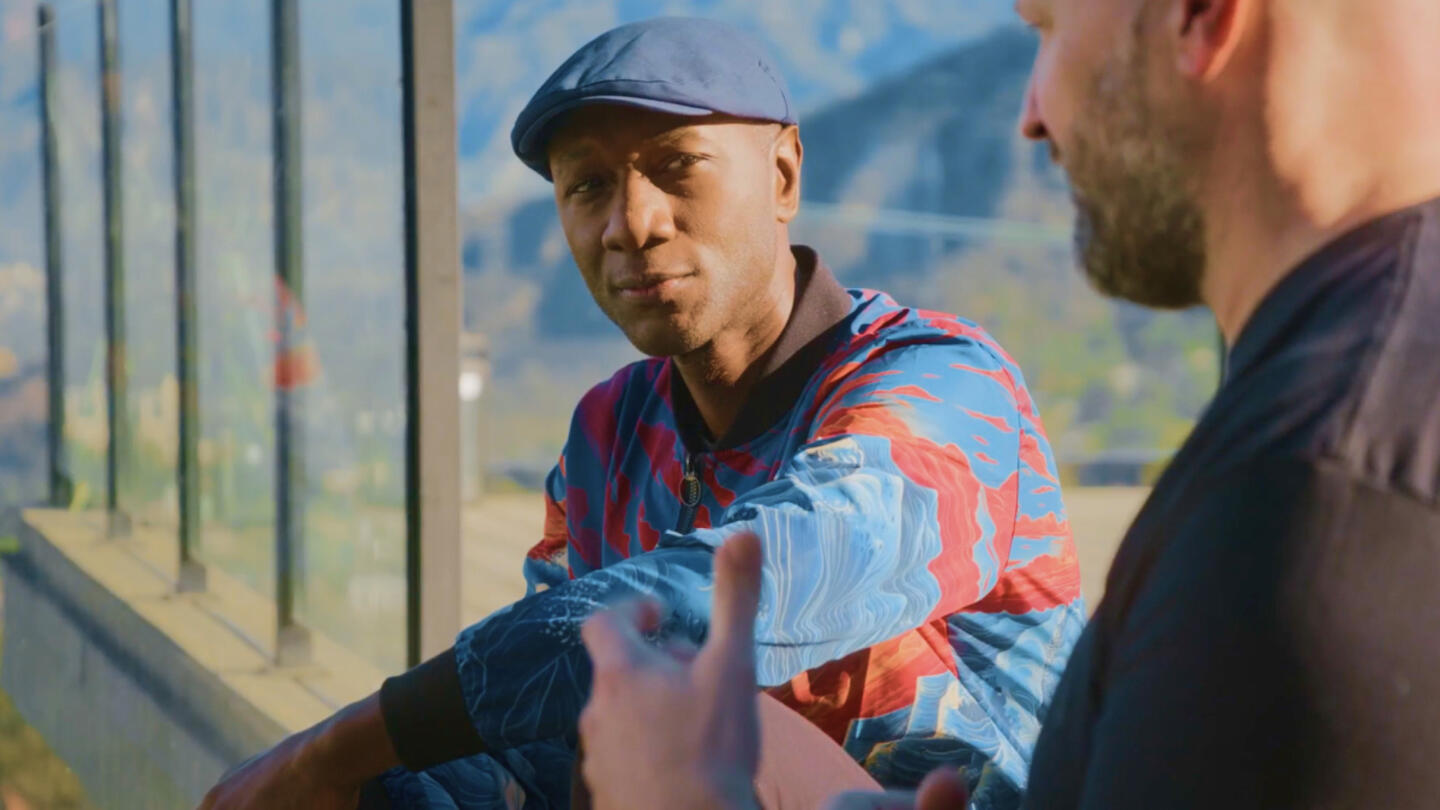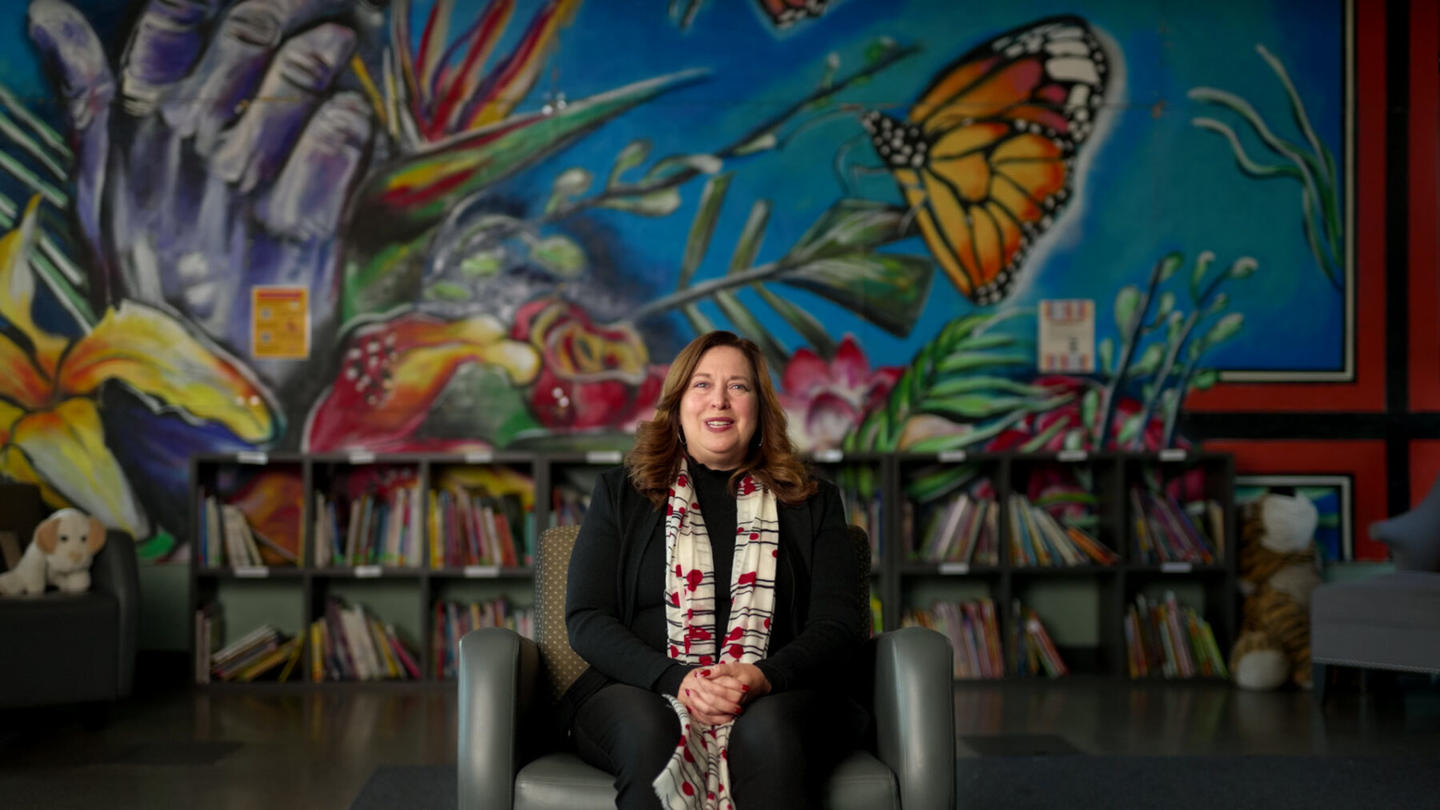Friends of the Children says it simply and succinctly: "No matter what."
This means they provide support for every child they work with over their entire childhood. No matter what. They live by this motto. And it changes everything for the children they support. Friends of the Children is a national nonprofit that aims to use early intervention to help foster youth escape generational poverty. They are committed to helping each child thrive, regardless of how long it takes.
This long term commitment is what sets Friends of the Children apart. They begin working with youth at age 4-6, and don't stop for twelve or more years.
National CEO Terri Sorensen characterizes this as "mentoring on steroids."
"We're coming early … and providing a consistent, caring adult for twelve plus years, their whole childhood," she says.
Rather than replace a parent or teacher, mentors are complementary to these figures in a child's life. By working alongside them, they create a support system around the youth, empowering them to realize and go after the future they want — not the future they feel born into.
The importance of mentorship: One mentor can make all the difference
When Friends of the Children alumni Jimmy started in the program at eight years old, it seemed like his future was already set in stone. Every man in his family for generations had gone to prison. After his father passed away when he was just two years old, he was raised by his grandparents, in an environment fraught with drug use and mental health challenges.
"I just saw so much that you should not see," he says. "It was a very chaotic and dysfunctional household. It was normal for me, though."
When he was introduced to John, his mentor, for the first time in his life there was "an adult that's there to listen to your dreams and wants and wishes. They're doing everything in their power to show you the path. That will change anyone's life."
John guided him through every aspect of life, including his relationships, school, home life, and dreams. Most importantly, he built up Jimmy's confidence, allowing him to "be around other people and not feel different, regardless of my social status."
"The real miracle with John is that there was no judgment, and that he could see my world and not be afraid of it," Jimmy says.
At 14, the last of Jimmy's available guardians passed away. John stepped in.
He heard and respected Jimmy's wishes to be emancipated from his circumstances. John helped him build a resume and apply to internships — a path that led to him becoming independent and employed at a high-end legal firm.
Years later, Jimmy works with a successful lawyer, advocating for other children in foster care just like him. The cycle he had been born into was officially broken.
Without John's presence in his life, he says, he would be addicted to drugs, and most likely die young.
"My kids will never have to experience that," he says.
Sign up for the Strong & Safe Communities newsletter for stories, ideas, and advice from changemakers working with their neighbors to address the biggest problems we face.
Friends of the Children's mentorship program works through the power of community
In the U.S., 11 million children live below the poverty line, roughly a third of whom will never rise above it.
Duncan Campbell was one of the lucky ones.
He founded Friends of the Children decades ago, thinking, "I didn't want any other child to have the childhood that I did."
With two alcoholic parents who were rarely present, Campbell had often yearned for a stable adult presence to guide him during childhood. This wish now provides the foundation of Friends of the Children, the strength of which is derived from the power of relationships and community.
The families involved in the program are almost entirely born into generational poverty, meaning circumstances passed down to them that are extremely difficult to escape. This includes low education rates, incarceration, and living within the mental health or foster care systems.
It takes a strong force to break the cycle from generation to generation. Fittingly for an issue that has been built up over many years, Friends of the Children commits to pursuing a solution that will also take many years. Rather than one-time assistance, children and their families receive long-term support in every facet of their lives.
"It's the relationship that allows the Friend to create resilience in the children, which is how they change and thrive," says Campbell.
These long-term relationships allow for Friends to not just demonstrate skills to their mentees, but to go much deeper, finding a child's "spark" and nurturing their unique talents and visions. This ensures that the child is empowered and equipped to pursue the life they want for themselves, even after their time in the program has ended.
And this doesn't just help the family: it creates a new generational cycle, replacing patterns of disadvantage and hopelessness with community-based motivation and self-determination. This "in turn makes the neighborhood and the community better, which makes the city better" says Campbell.
Investing in mentorship program models could reap huge benefits
Long-term issues like generational poverty require long-term solutions. Currently, federal, state, and local governments spend roughly $1.8 trillion on public welfare annually. Evidence shows that relationship-based models are an effective alternative to these top-down approaches. For every dollar invested in a child in Friends of the Children, the return is over $7, or $900,000 total per child.
Eighty-three percent of youth who participate in Friends of the Children graduate from high school, most of whom are the first in their families to do so. Additionally, 93% avoid incarceration (and involvement with the justice system altogether), and 98% avoid becoming a teen parent.
The program currently works in 33 communities nationwide, including Austin, Los Angeles, Chicago, Houston, San Francisco, Boston, Tampa, and many others. Their goal is to have roots in more than 50 cities around the country, so that "every child who needs a friend would have one," says Sorensen.
Rather than look back at the circumstances their parents and grandparents were caught in for insight into their futures, Friends of the Children allow youth to instead look forward. To see what lies ahead, they need only look at relationships like John and Jimmy's.
Today, although John is no longer Jimmy's formal mentor, he is still a constant presence in his life. Their relationship was far from isolated to the Friends of the Children program: it was for life.
***
Friends of the Children is supported by Stand Together Foundation, which partners with the nation's most transformative nonprofits to break the cycle of poverty.
Learn more about Stand Together’s efforts to build strong and safe communities and explore ways you can partner with us.

At this ‘resort,’ children with intellectual disabilities are seen as gifts to be celebrated and loved.

Veterans experience loss when leaving service. Could this be key to understanding their mental health?

The Grammy-nominated artist is highlighting the stories we don’t get to hear every day.

With his latest project, Blacc isn’t just amplifying stories — he’s stepping into them
